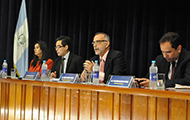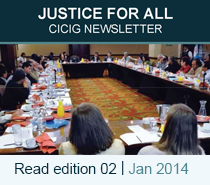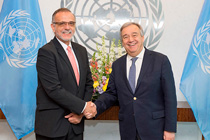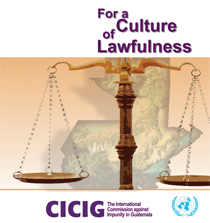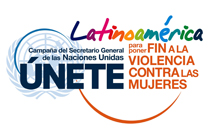 Guatemala, June 16, 2011. The Second Regional Esquipulas Forum: Thinking Central America was recently held, providing an opportunity to discuss and reflect on current topics and thereby provide inputs to regional institutions, with the aim of creating regional policies.
Guatemala, June 16, 2011. The Second Regional Esquipulas Forum: Thinking Central America was recently held, providing an opportunity to discuss and reflect on current topics and thereby provide inputs to regional institutions, with the aim of creating regional policies.
The Regional Esquipulas Forum arose out of a Guatemalan initiative of the Esquipulas Foundation for Central American Integration, with the aim of providing solutions to problems shared by Guatemala and the Central American and Caribbean region. This seeks to generate a flow of ideas for Central America to make the regional integration process viable in areas such as politics, economics and cultural affairs.
"Without forensic police, the criminals will be certain that they will neither be caught nor will they have to fear prison sentences; however, to have first-class security it is also necessary to have an aggressive fiscal policy."
Francisco Javier Dall'Anese Ruiz
CICIG Commissioner
As part of the Second Regional Forum, a panel was held titled "Security: The Challenge for Central America and Democratic Governance", where issues such as regional security and education as a prevention measure were covered. Among the participants in the panel were: General Juan José Ruiz, Minister of Defense of Guatemala; lawyer Julio Rivera Clavería; Claudio Magnífico, Director of Escuelas Abiertas in Guatemala; and Francisco Javier Dall'Anese Ruiz, head of the International Commission against Impunity in Guatemala (CICIG).
Each of the panelists shared their opinions, based on their own differing points of view, about the alarming state of the Central America region and offered possible solutions, all of which had a common denominator, regional strategies.
Commissioner Dall'Anese said that a forensic police team must be created to prosecute and punish criminals and members of organized crime groups, because the problem will not be solved by increasing prison sentences or defining new crimes.
"Without a forensic network, the criminals will be certain that they will neither be caught nor will they have to fear prison sentences; however, to have first-class security it is also necessary to have an aggressive fiscal policy," he added.
He emphasized that security is guaranteed through preventative policing, because it is the only means of preventing crimes from being committed, and not simply through prosecuting and punishing criminals.
According to Julio Rivera Clavería, a Mesoamerican police investigation force should be created in order to target members of criminal organizations, which are inflicting damage upon the region.
"Crime has been globalized and Central American countries have failed to grasp the extent of the problem and, in our country, we have not assembled a solid team of investigators to study and analyze how best to tackle these groups," he said.
General Juan José Ruiz, Minister of Defense of Guatemala, said that the proliferation of drug trafficking and organized crime in the region was creating insecurity, violence, addiction and decomposition within society. Therefore, he said the different sectors of a State should act in order to combat the problem: "To fight this scourge, the police force, the Army and the justice system should work together on a national and regional level."
Claudio Magnífico, Director of Escuelas Abiertas in Guatemala, said that prevention is one of the solutions to reduce insecurity levels in Central America. He said that this has been demonstrated by the reduction in national crime levels in marginal areas following the introduction of the prevention program.
"An alternative education program has been implemented covering learning, art, science, technology and sport; at present, there are 270,000 beneficiaries who take part in the program on a weekly basis, acquiring skills related to computers, English, karate, music and theatre.
Therefore, he said it would be important to promote alternative education of this type for the young as a preventative measure, with the aim of reducing crime levels in the country and Central America.
The panelists concluded that it would be key to professionalize the region's police institutions in fighting the organized crime organizations that generate insecurity and violence in Central American countries.


